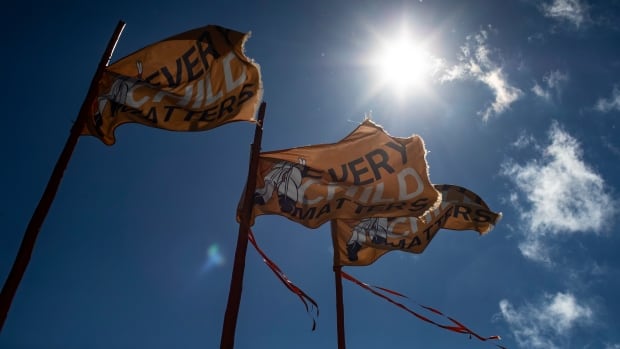Some Indigenous-run child welfare agencies are warning that Ottawa’s planned overhaul of the Indigenous child welfare system could leave thousands of kids and families without services.
The federal government is planning to redirect funding from Indigenous child and family services agencies to communities as part of a $20 billion reform package now being negotiated by Ottawa and First Nations leaders.
That sum amounts to half of Ottawa’s historic $40 billion settlement agreement on child welfare. The other $20 billion has been set aside for individual compensation.
Some observers say the proposed reform of the child welfare system could lead to deep funding cuts for some non-government child welfare agencies, such as the Native Child and Family Services of Toronto.
The agency’s executive director Jeffrey Schiffer said it faces a $10.5 million cut — 20 per cent of its budget — by the end of the current fiscal year. He said that cut will have a direct impact on prevention programs.
“What we’re really worried about is this resulting in a massive spike in kids entering the child welfare system, which I think is the opposite direction that we want to go and the opposite direction that all of these reforms are meant to achieve,” Schiffer said.
“Some agencies could be drastically affected,” said Michael Miller, executive director of the Association of Native Child and Family Service Agencies of Ontario.
Federal officials say no child will be left behind by the planned changes — but they have yet to reveal how services will be delivered under the new framework.
The uncertainty is creating stress for those who depend on private agencies for services.
“It’s very disheartening,” said Chantel Pinacie, a mother who found housing through Native Child and Family Services under a program that’s now at risk of being cancelled.
“Single mothers need access to this funding.”
System reform still being negotiated
Indigenous Services Minister Patty Hajdu said the changes to the First Nations child welfare system will make it more responsive to the needs of families and communities.
“Indigenous-led systems are going to be stronger in the approach to understanding how best to care for families and for children,” she said.
“Will it be seamless? I hope it will be as seamless as possible. But of course, we’re always interested in how better we can support that work and it is in its early stages.”

Valerie Gideon, associate deputy minister of Indigenous Services Canada, told CBC News that final decisions about funding for Indigenous child and family services in the coming fiscal year will depend on two factors.
The federal government needs first to reach a final agreement on long-term child welfare system reforms by December 31, she said. The Canadian Human Rights Tribunal must also endorse the separate $20 billion compensation package for individuals under its discrimination rulings and orders.
“The child that is receiving services would continue to do so, but under a different service delivery arrangement,” Gideon said.
Indigenous Services Canada has so far received 64 notices and requests from 58 Indigenous governing bodies that want to assume control of foster care services, said Gideon.
Gideon said her department met the demand by increasing funding to First Nations for prevention services by 270 per cent as of April 1.
“It is about looking at different service delivery arrangements or partnerships with First Nations to be able to support their aspirations of greater control and greater involvement in the delivery of service,” she said.
The NDP’s Crown-Indigenous affairs critic Charlie Angus, MP for Timmins–James Bay, said that while his party supports the right of First Nations to control their own systems, the transfer of services to them must happen without a hitch.
“The federal government wants to download all their obligations,” Angus said.
“But if they download it without proper funding, children are going to get hurt and First Nations communities are going to be blamed.”
Miller told CBC News it’s going to take time to build up capacity at the community level.
“I do see the opportunities but I do see the concerns,” Miller said before he got directly involved in the federal-First Nations negotiations on child welfare reform.
“How do we transition without a huge impact or even, worst case scenario, a loss of services to individuals?”
Native Child and Family Services estimates that more than 3,598 Indigenous children and young people at risk of being drawn into the child welfare system could be left without adequate access to prevention support, said Schiffer. That could lead to 1,000 children and youth ending up back in the system, he added.
Schiffer said he fears the planned reforms could leave behind Indigenous children and families living in urban settings.
“We need to ask ourselves, if we’re reforming the system for First Nations kids, [then] who counts as a First Nations kid?” Schiffer said.
“Is it only First Nations kids who live on-reserve, or who have legal status under the Indian Act? Or is it also First Nations kids who are connected to their home community but are living in the city of Toronto for a time?”


